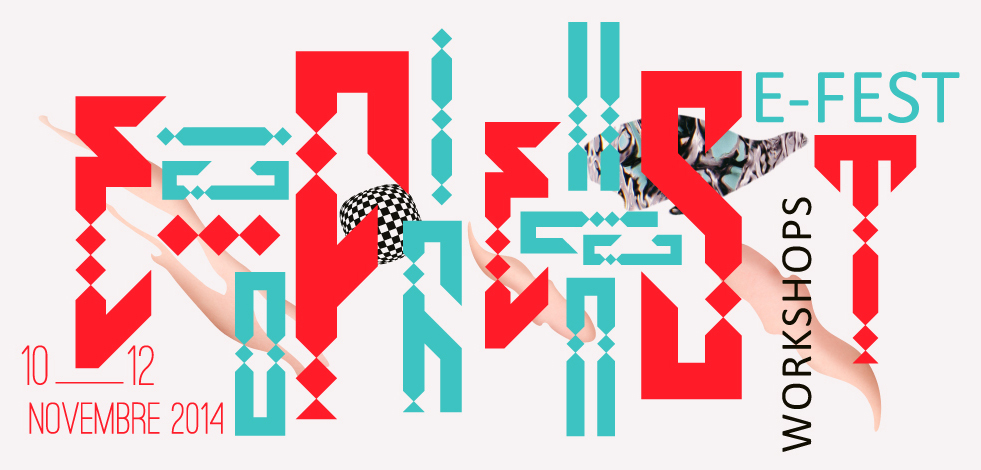
PROCESSING workshop and New Media Art
The workshop is aimed at artists – students and the curious who have a New Media practice.
Speakers : Ali Tnani
1 – Introduction to ‘Processing
Processing basics: drawing, displaying, communicating, etc…
Programming: variables, conditions, repeats, lists, methods, objects, comments.
Objective: Explore the basics of the language and environment, using simplified examples.
2 – Processing’ and new media art
Context: New media art
Objective: Explore some of Processing’s possibilities, to give an impetus to participants with programming and/or multimedia skills: use of Draw, libraries, examples.
ABLETON LIVE’ introductory workshop
This workshop is aimed at artists, students and anyone with an interest in music.
Presenter : Skander Besbes
1 – Introduction to Electronic Tools & Instruments
Global history – Synthetizers (analog, digital, FM) – Sampling and Samplers – General operation and Analog Set-ups
2 – Program and tool overview
Ableton: Session interface VS arrangement interface – Virtual instruments – Audio Effects – MIDI Tools – Basic functions, Workflow & important keyboard shortcuts.
3 – Advanced functions & sound design – Automations – Resampling – Sound design – Various techniques – Using plugins
4 – Practical work
Exercises in groups of two or three, depending on the total number of participants.
Process of creating a song – rhythmic writing – harmonic writing – basic arrangement of a song – introduction to the basics of mixing.
MAX FOR LIVE workshop « field recording as musical material ».
This workshop is aimed at student-artists and those with an interest in music.
Speakers : Nicolas Charbonnier and Intercal artists
1 – Field Recording
Field recording session in the city.
2 – Introduction to Max for Live
Synchronizing max and live, a few examples of how the two programs complement each other. (The morning’s field recordings will be used to illustrate the examples.
3 – Discussion with the artists
Practice and use of field recording in musical creation.